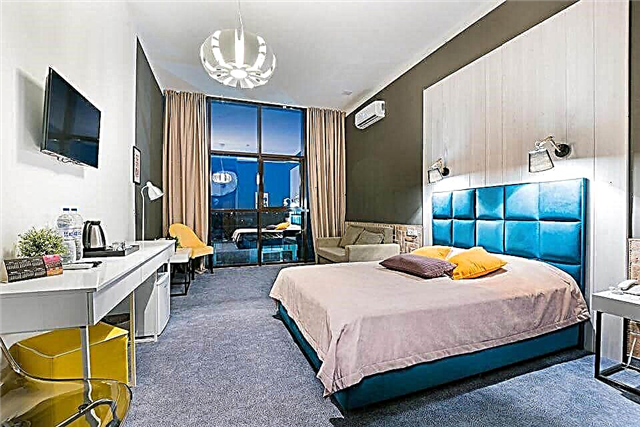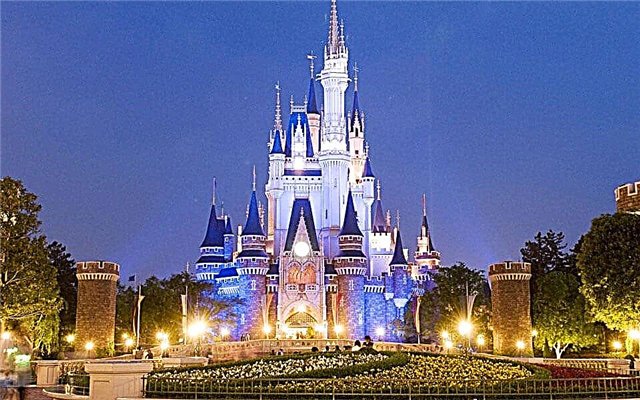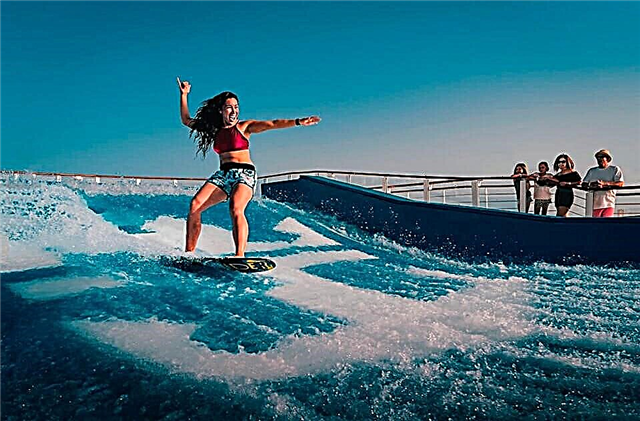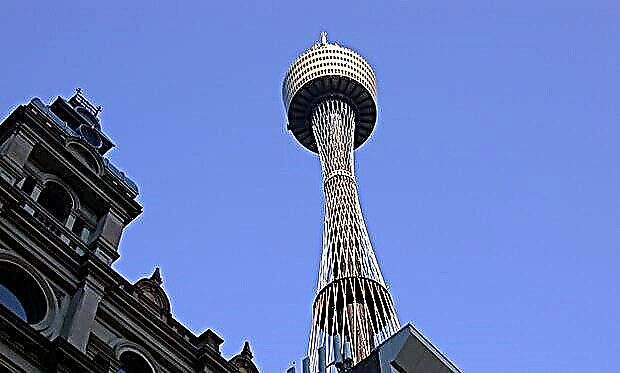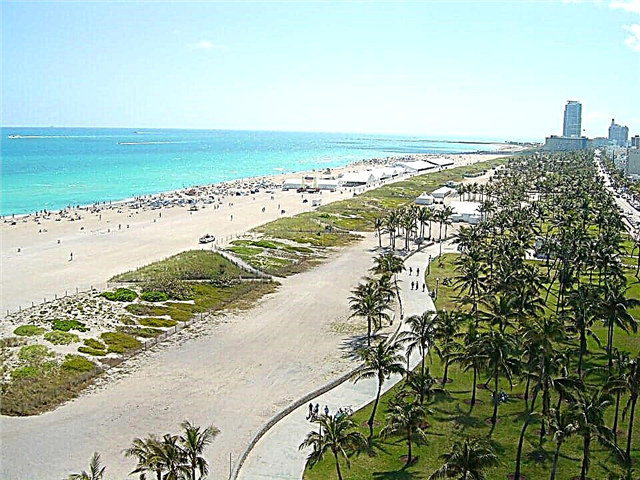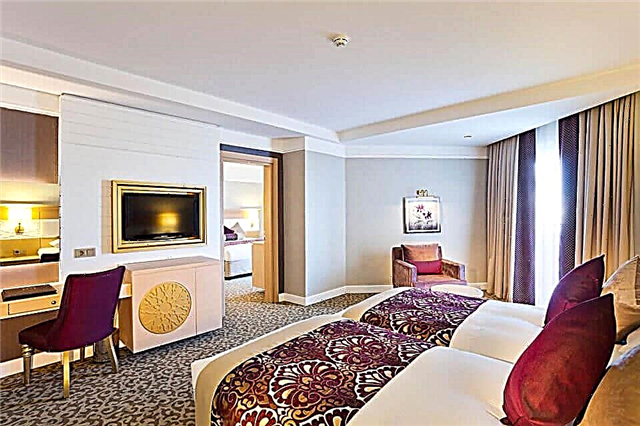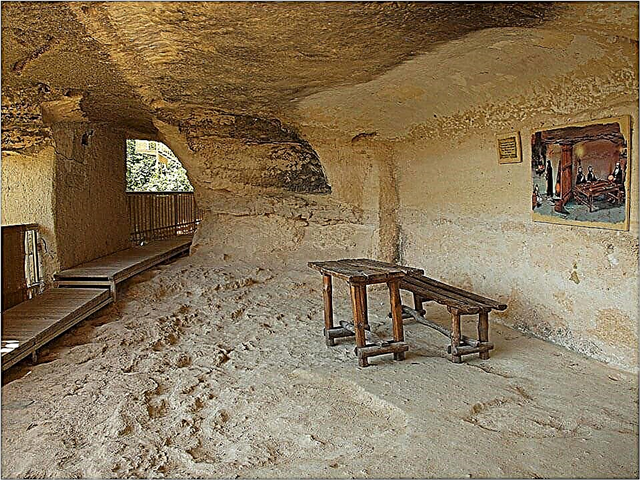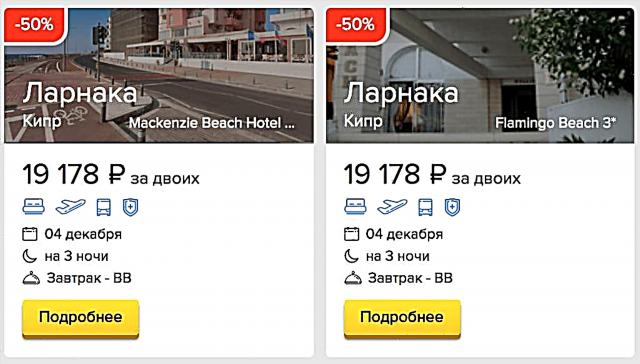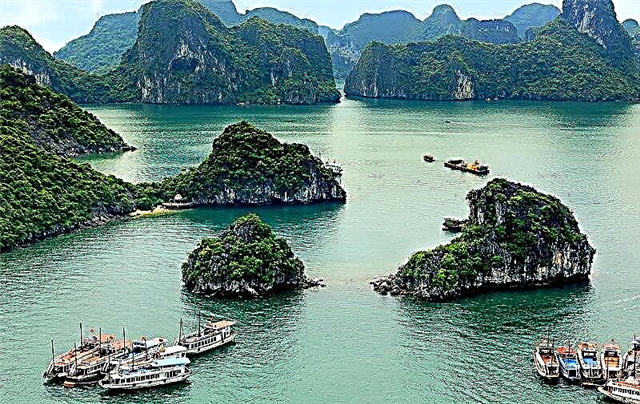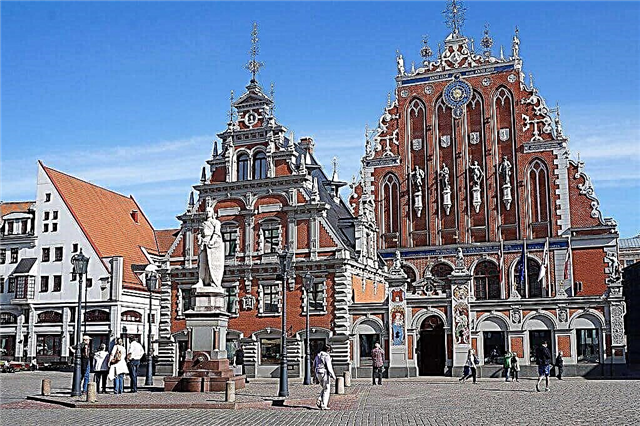Latvia is a country with a leisurely pace of life. Hospitable locals advise, just as leisurely and measuredly, to get acquainted with the various sights of the pearl of the Baltic. The architecture of the country is represented by old buildings - the Bauska Castle or the Dome Cathedral and modern buildings - the Riga TV Tower. Separately, we can highlight the houses of the style characteristic only for the capital - Riga Art Nouveau.
Natural beauties - waterfalls, rivers, forests can be appreciated in the national parks of Latvia. Many of them have health centers. Cultural life is represented by museums of various subjects. An art museum and an ethnographic museum are traditional. Unusual and unique - the Riga Motor Museum. Not only the capital of the country is worthy of attention of tourists, but also small and cozy cities such as Kuldiga or Jurmala.

The best hotels and hotels at affordable prices.
from 500 rubles / day
What to see and where to go in Latvia?
The most interesting and beautiful places to visit, photos and a short description.
Old Town (Riga)
The historical part of Riga, with which it is advised to start exploring the capital. Walking through this area will take several hours. There are beautiful churches and old houses in the cozy streets of the Old Town, as well as the Riga Castle - the centuries-old residence of the rulers of the state. Seasoned travelers are also advised to visit one of the small cafes in the Old Town. The pastries and coffee in them are incredibly tasty.

House of Blackheads (Riga)
The building belonged to the largest corporation of foreign shipowners and merchants, founded in the XIV century. In the past, they held balls and celebrations in this house, as well as held important public meetings. The facade of the building was reconstructed after the destruction during the Great Patriotic War. Currently, the building of the House of the Blackheads is used for concerts of classical music.

Riga modern
About a third of the houses in the center of Riga are made in a special architectural style called "Riga Art Nouveau". Most of the buildings were erected at the beginning of the 20th century. The distinctive elements of the style are bas-reliefs in the form of women's masks, unusual floral decorations and stucco moldings in the form of mythological creatures. Many houses of this style are located on Elizabetes Street, Alberta Street. Interesting is the "House with Dragons" at 8 Antonijas Street.

Freedom Monument (Riga)
Installed in 1935. It honors the memory of the fighters who died for the independence of Latvia. Located on the central boulevard of Riga. The height of the monument is 42 meters. On top of it there is a 20-meter sculpture of a young girl, it is she who symbolizes freedom. At the base of the stele there are 13 figures and sculptures depicting highlights of the country's history. The Freedom Monument is considered the unofficial symbol of the country.

Kuldiga
An ancient city with unusual architecture in the west of the country. One of the first churches in the city is the Church of St. Catherine, founded in 1252. Since the 17th century, the city square has kept the traditions of the city - celebrations, fairs and exhibitions are held there. The Venta River attracts travelers' interest. It forms a wide picturesque waterfall. For the passage to the other side, in 1874 a bridge with brick vaults was laid across the river.

Jomas street (Jurmala)
It is one of the oldest in Jurmala, founded in the 19th century. The street is pedestrianized with many cafes, small restaurants and souvenir shops. Every year, festive events are held there in honor of the foundation of the street - contests and concerts are held, rides are arranged, fireworks are set off. An interesting historical building is the Jurmala People's House, which previously housed a cinema.

House with black cats (Riga)
Built in the late Art Nouveau style in 1909. The cats, symmetrically mounted on turrets, were originally turned with their tails towards the Great Guild building. According to legend, this is how the homeowner Blumer cynically expressed his displeasure, who was not accepted into it. As a result of numerous lawsuits, the cats were turned the other way. The facade of the building is decorated with an eagle with spread wings.

"Three Brothers" (Riga)
Residential complex representing a single architectural ensemble in Old Riga. Urban legend says that they were built by three men from the same clan. Each of them erected a building in their own style, characteristic of the era of construction. The earliest of all was built "White Brother" - in 1490, "Middle Brother" - in 1746, "Green Brother" - in 1718. Currently, the buildings of the architectural monument are occupied by state institutions.

Daugavpils fortress
Located in the city of Daugavpils, it is a defensive fort on the banks of the Western Dvina River. The construction of the castle began in the 19th century. The fortifications consist of a rampart, bastions and redoubts. On the parade square of the fortress there was a church, which was blown up in 1944. The fortress is divided into quarters, the main and secondary streets are laid. The décor of the fortress houses is minimal, made in the style of late classicism.

Latvian National Opera (Riga)
It is home to the National Opera and Ballet Troupes. This state institution is engaged in the development of classical art in Latvia. The building was built in 1863 and originally belonged to the City German Theater. Over the years, it has suffered fires, an artillery shell hit and several renovations. Many ballet dancers have achieved world fame - Mikhail Baryshnikov, Maris Liepa and Alexander Godunov.

Concert hall "Dzintari" (Jurmala)
A cinema and concert complex known all over the world. It hosts world-class festivals and concerts. For better sounding, special elements - glass rhombuses - are installed above the stage of the open large hall. The five-level stage can be used for concerts of various themes - jazz, choir and performances of symphony orchestras. The Small Hall is stylized with motives of national romanticism.

Riga Motor Museum (Riga)
One of the most interesting car museums in Europe. The three-storey building was built specifically for the exhibition of a collection of cars. The area of the museum halls is more than 3000 m2. On display are cars made in Latvia, military equipment, a collection of cars produced by the Auto-Uniom concern, as well as motorcycles, mopeds and outboard motors. Some exhibits, such as the Soviet RAEF-50, exist in a single copy.

Latvian Ethnographic Museum (Riga)
Founded in 1924. Consists of 118 buildings transported to the museum from different parts of Latvia. Together, they give a complete picture of the rural historical landscape of the country. The houses of fishermen, artisans and peasants are available for inspection. Of the outbuildings - mills, churches, smithies. Inside the buildings, the interior has been recreated, corresponding to the life of people in a particular region, the way of life and culture of the time period is shown.

Latvian National Museum of Art (Riga)
The museum displays over 50,000 works of art. The canvases of both Latvian and foreign artists are presented. The building of the museum itself in the style of classicism and baroque is an architectural monument. It was built in 1905. More than 100 years later, the building was reconstructed. An underground floor with a glass roof appeared. Two roof terraces were rebuilt into exhibition halls.

Latvian War Museum (Riga)
Dedicated to the history of the Latvian armed forces. Initially, the museum was housed in the surviving Powder Tower, and the exposition was dedicated to the memory of the Latvian riflemen who died in the First World War. In 1940, the museum moved to a building specially built for it.At present, the museum's expositions cover the military history of the peoples of the Baltic region over many centuries and the role of the armed forces in the formation of the Latvian state.

Museum of the Occupation of Latvia (Riga)
The museum exposition tells about the history of Latvia from 1941 to 1990. The museum is private, but has government accreditation. The funds contain more than 60,000 items and 30,000 documents and photographs that preserve the memory of the period of the occupation of Latvia. Including recorded more than 2000 videos with people who survived this period. The museum is often visited by big politicians such as Petro Poroshenko and Angela Merkel.

Dome Cathedral (Riga)
One of the largest and oldest religious buildings in Latvia. The cathedral was built in 1211. Located in the center of Riga. Its architectural style combines elements of Art Nouveau, Baroque and Gothic. The height of the spire before the fire in 1547 was 140 meters. An organ with 6768 pipes is installed in the cathedral. Hundreds of people come to enjoy his music. And also within the walls of the cathedral is the Museum of the History of Riga and Navigation.

St. Peter's Church (Riga)
Lutheran Church, built in 1209. Included in the list of objects protected by UNESCO. Its 123-meter spire is visible from almost all corners of Riga. Above - only the Riga TV tower. There is an observation deck on the spire at a height of 71 meters. Almost the entire city and the valley of the Daugava River are perfectly visible from it. Inside the church are an ancient carved wooden altar, a Blue Guard chapel, and a statue of the knight Roland.

Nativity of Christ Cathedral (Riga)
Cathedral, built at the end of the 19th century in the traditional Byzantine style. The temple is five-domed with a large bell tower. For the painting were invited Russian painters - Vereshchagin, Shamshin, Venig. The 20th century was difficult for the cathedral. During the change of political power in Latvia, services were not held in the cathedral, the building practically collapsed. Only in 1992 religious life resumed in the restored building.

Aglona Basilica
Founded in 1768. More than 150,000 pilgrims come here on the day of the Ascension of the Mother of God. The record for attendance was 1993, when Pope John Paul II served the Pontifical Mass. 380,000 pilgrims came to listen to Mass. The basilica style is late baroque. There are beliefs that the spring near the lake near the basilica is holy and can heal, and the Anglon Mother of God protects newborn children.

Turaida castle
Founded in 1214. Built on the site of a wooden crusader castle. It burned down at the end of the 18th century. But tourists continued to visit its ruins anyway, and their interest in the ruins influenced the decision to restore the castle. Since 1973, excavations have been carried out here and many valuable antiques have already been found. In parallel, the restoration of the castle is underway. Several towers, part of the buildings and walls have been restored.

Sigulda castle
Built by the Crusaders in 1207 after their victory over the local population. One of the most powerful and protected fortresses in Livonia. Over the centuries, the castle has changed many owners and survived many battles and assaults. To date, a tower and several fragments of walls have survived from the castle. In the design elements, you can see the early Gothic style. Elements of the interior and facades have been preserved in the ruins of the chapel.

Rundale Palace (Pilsrundale)
Residence of the Dukes of Courland. Its name means "Valley of Tranquility". Its construction began in 1736. The palace complex includes outbuildings and a stable. It is surrounded by a French-style garden. The palace is two-storey and has 138 rooms. It was built in the Baroque style, and the facade is made in the Rococo style. Currently, the door is used by the President to receive high-ranking guests from abroad.

Cesis castle
Also known as Wenden Castle. One of the best preserved castles of the Teutonic Order. Built in the XIII century. The city of Cesis was built at its walls later. Among the owners of the castle is the Russian chancellor Bestuzhev, who abandoned the castle after a strong fire in it. At the end of the 18th century, Baron Sivers restored the castle, and also added annexes to it - the Church of the Savior, the New Castle and the Lademaher Tower.

Bauska castle
Built in the 15th century by the knights of the Livonian Order to protect against Lithuanian troops. Over time, the settlements of artisans and fishermen around turned into the town of Bauska. During the Second Northern War, the castle was blown up by order of Peter I. And the locals used the fragments of the walls for their own needs. In 1970, the restoration of the castle began. Currently, several museum exhibitions are located within its walls.

Riga TV tower
The tallest building in the Baltics with a height of 369 meters. The TV tower is located on the Hare Island. At a height of 97 meters, there is an observation deck from which Riga and the Gulf of Riga are remarkably visible. High-speed elevators are located in two pillars of the tower. Above, to the technological floors, there is an ordinary elevator. The building of the TV tower looking up into the sky is one of the most recognizable symbols of Riga.

Dzintari Forest Park (Jurmala)
Located in the center of Jurmala. A unique forest of 200-year-old pines grows in it. The green zone is large - it occupies 13 hectares. Great for hiking. The paths are laid between the trees, there are a sufficient number of benches for rest. The park has special paths for cycling and roller skating. Children's playgrounds are equipped, a skate park is equipped for teenagers.

Vermanes Park (Riga)
Founded in 1813, it is one of the oldest parks in Riga. Named in honor of the widow Verman, who donated a large sum for the arrangement of the park on the site of the quagmire. The area of the park is 5 hectares. There is a fountain in the center of the park. More than 2,000 trees and shrubs have been planted, including those not typical for this area - ash-leaved doe and Manchurian walnut. The park's rose garden is remarkable - the first in Riga.

Ventas-Rumba
The waterfall is located in the city of Kuldiga on the Venta river. The natural monument is appreciated for the fact that it is located within the city limits and its inspection is very convenient for tourists. From the side of the city, a staircase has been built to it and there is an observation deck. The width of the waterfall is about 100 meters, during high water it can be more than 200 meters. Height - about 2 meters. The flow of the river is slow, some daredevils wade through the waterfall a step away from the cliff.

Daugavas loki
The nature park is located on the banks of the Daugava River, in a picturesque place where it makes 8 bends. The height difference in this place is significant - it reaches 50 meters. The largest cliff with the name Verversky is 42 meters high. Several thousand people visit the park every year. They are attracted not only by the natural beauty of the park, but also by the historical sights in it - castles and parishes.

Kemeri
The national park was founded in 1997 and is of high importance in the field of nature conservation. Divided into three zones. People cannot enter one of the protected areas at all, while visitors are allowed access to others. Trails are laid for walks, bridges are thrown across the streams. They pass through the large Kemeri bog, sand dunes, past lakes. Bicycles can also be rented. There are two mineral springs in the park, they do SPA procedures.

Gauja
The picturesque park is the most famous in Latvia. Located in the valley of the Gauja River. Due to its beautiful views and landscapes, the park is often called Livonian or Latvian Switzerland. Most tourists are attracted by the Devonian sandstone cliffs, their height reaches 90 meters. Most of the territory is covered with forest, there are many lakes in it. You can also see historical monuments - barrows, medieval castles, rock paintings.

Riga Zoo
More than 300,000 people visit the zoo every year. It is home to over 2000 animals of 400 different species. The zoo is located on the shore of Lake Kisezers. It is a large green area with walking paths and beautiful landscaping. Cozy gazebos were built on the shore of the lake. You can not only look at the animals in the Riga Zoo, but also feed them. The Village Corner is equipped for this.The zoo has a café for visitors.

Jurmala beach
The total length of the beaches of Jurmala is about 30 km. All are covered with clean and soft sand. Majori beach is considered the most popular among young people because of the many active beach activities on it. For families with children, choose Bulduri and Jaunkemeri. They have an even and shallow entry into the water. Windsurfers prefer Pumpuri Beach - strong winds create decent waves there.

Gulf of riga
Located between Estonia and Latvia. On its banks are the cities of Riga, Jurmala, Pärnu. The water temperature in summer warms up to 18 degrees, and in winter it drops below 0 degrees. The wide beaches of the shores are composed of white sand, but there are also rocky areas. There is a strip of dunes up to 10 meters high. Some parts of the coast are covered with dense forest. The diverse nature of the bay makes it a wonderful holiday destination.


